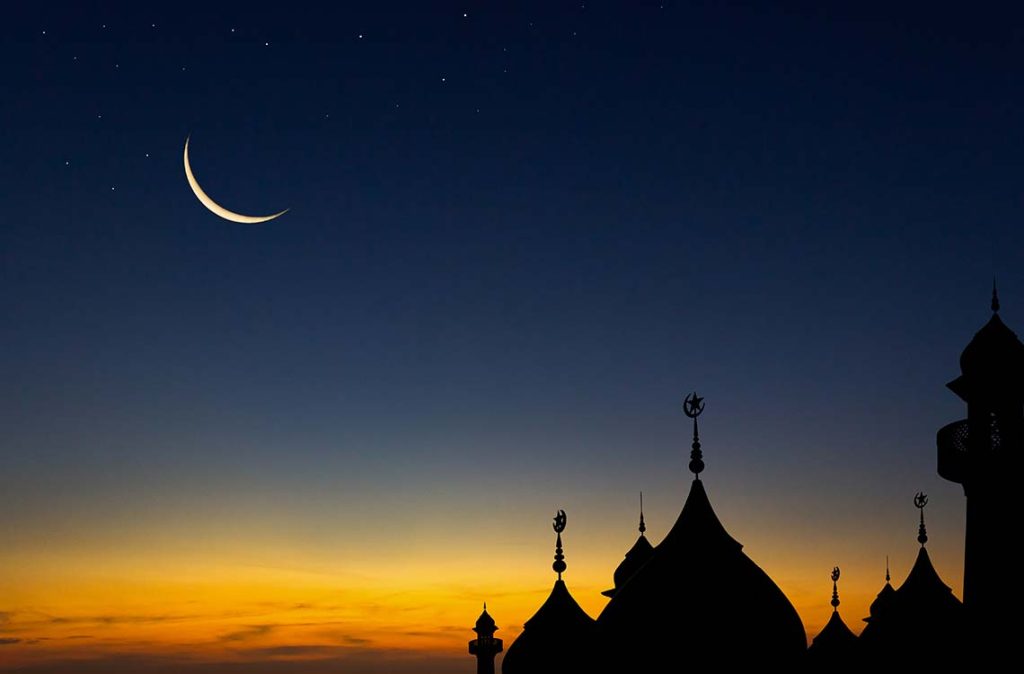Eid al-Adha, also known as the ‘Festival of Sacrifice’ and commonly referred to as Hari Raya Haji in Malaysia, is one of the more important Islamic holidays. It is observed by Muslims all over the world to commemorate the story of Ibrahim and Ismail. For Malaysians, the day is also often called Hari Raya Qurban because of the sacrificial act of slaughtering livestock. While people often give more attention to Eid al-Fitri (Hari Raya Aidilfitri or Hari Raya Puasa), Eid al-Adha also plays a huge part in fostering charity, camraderie and devotion among Muslim communities.
But that’s not all. Just like Eid al-Fitri, Eid al-Adha is also a time of celebration. A time of forgiveness and letting go of old grudges, a time of worship and devotion and remembrance of Allah SWT. But most of all, Eid Al Adha is about sacrifice. Your kids may be too young to understand what the holiday is about, but in honour of Eid al-Adha, here are some valuable lessons your child can learn about this special day.
The Value of Sacrifice
Eid al-Adha commemorates the story of sacrifice, worship and gratitude. According to the Quran, the Prophet Ibrahim was sent a command by Allah SWT in a dream to sacrifice his son Ibrahim as an act of devotion. Just as Ibrahim was about to carry out the deed, Allah SWT replaced his son with a lamb. One of the key lessons of this story is sacrifice. We all have to make sacrifices in this life, sometimes not only for our own benefit but for the benefit of others. The story of Ibrahim and Ismail teaches us that in order to fulfil a higher calling, we must be willing and ready to give up the things we love. Just like how the butterfly sacrifices the caterpillar to be reborn anew, so too must we sacrifice the parts of ourselves that no longer serve us. This will in turn also ensure we be better versions of ourselves.
The Gift of Giving
One of the main traditions of Eid al-Adha is the slaughtering or ‘qurban’ of livestock, specifically cattle. The ‘sacrifice’ is killed in the Islamic way before being distributed as a token of charity. While a portion is given to family and friends, the rest of the sacrificial meat is also given to the needy and less fortunate. This ensures that everyone in the Muslim community gets to savour the abundance of the land and not just those who are wealthy. In fact in some communities, the meat is given to the poor first before being distributed among privileged Muslim families. This tradition is an important lesson for your kids to always prioritise the less fortunate.
Loyalty to One’s Parents
The story of Ibrahim and Ismail teaches us to obey the commands of God, even if it means giving up something we love. But if we take the parable as a secondary lesson, it can also be interpreted as a child’s willingness to sacrifice themselves for their parents. The same way that their parents have sacrificed everything to raise them. Your own kids may be too young to understand such a complex concept, there is still worth in teaching them about reciprocity and obedience. If your parents have loved, clothed, fed and educated you to the best of their ability then that’s more than enough for you to repay their sacrifice. So even though you are a parent yourself now, don’t forget to honour your parents’ sacrifices this Eid al-Adha too.
Celebrating the Sacrifices of the Past
Sacrifice may mean different things to different people. To some it may mean redemption and penance, to others perhaps devotion and love. We sacrifice our time, money, energy and happiness for various reasons. For our country, our family and our faith. But we must also honour the sacrifices of those who have come before us. For we would not be here without them. Just as we celebrate the sacrifice of Ismail, so too must we celebrate the sacrifices of our elders.
Our grandparents and great-grandparents fought tooth and nail to ensure the prosperity and happiness of their future descendants. They may not have led happy childhoods, or lived in comfort and abundance. But they defied the odds and paved the way for a brighter, better world for their successors. If you want your kids to honour your sacrifices, start by honouring the sacrifices of your own parents’ this Eid al-Adha. They will undoubtedly be moved and feel appreciated too. Motherhood Story wishes all our Muslim readers and their families a blessed Eid al-Adha!
For more insightful stories and fun recipes, stay tuned to Motherhood Story!
